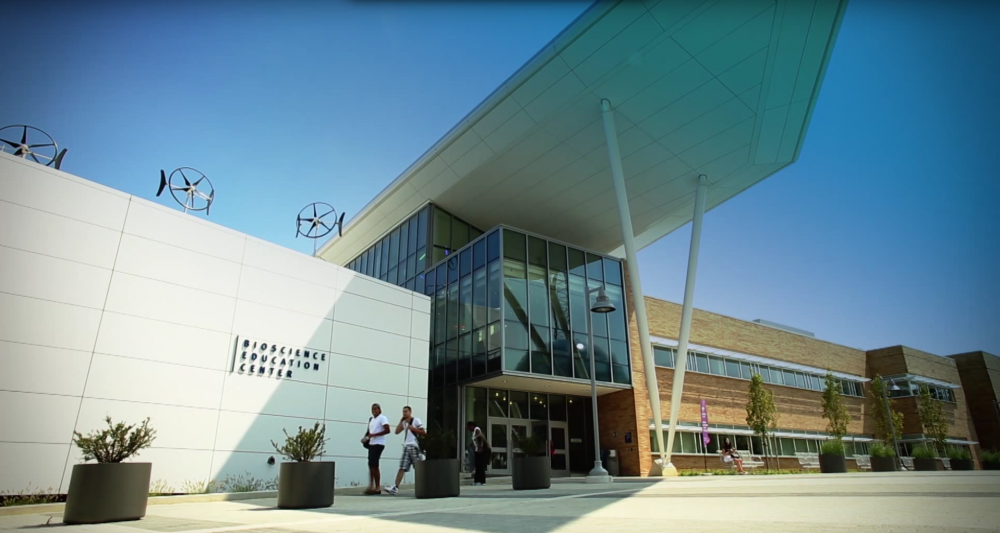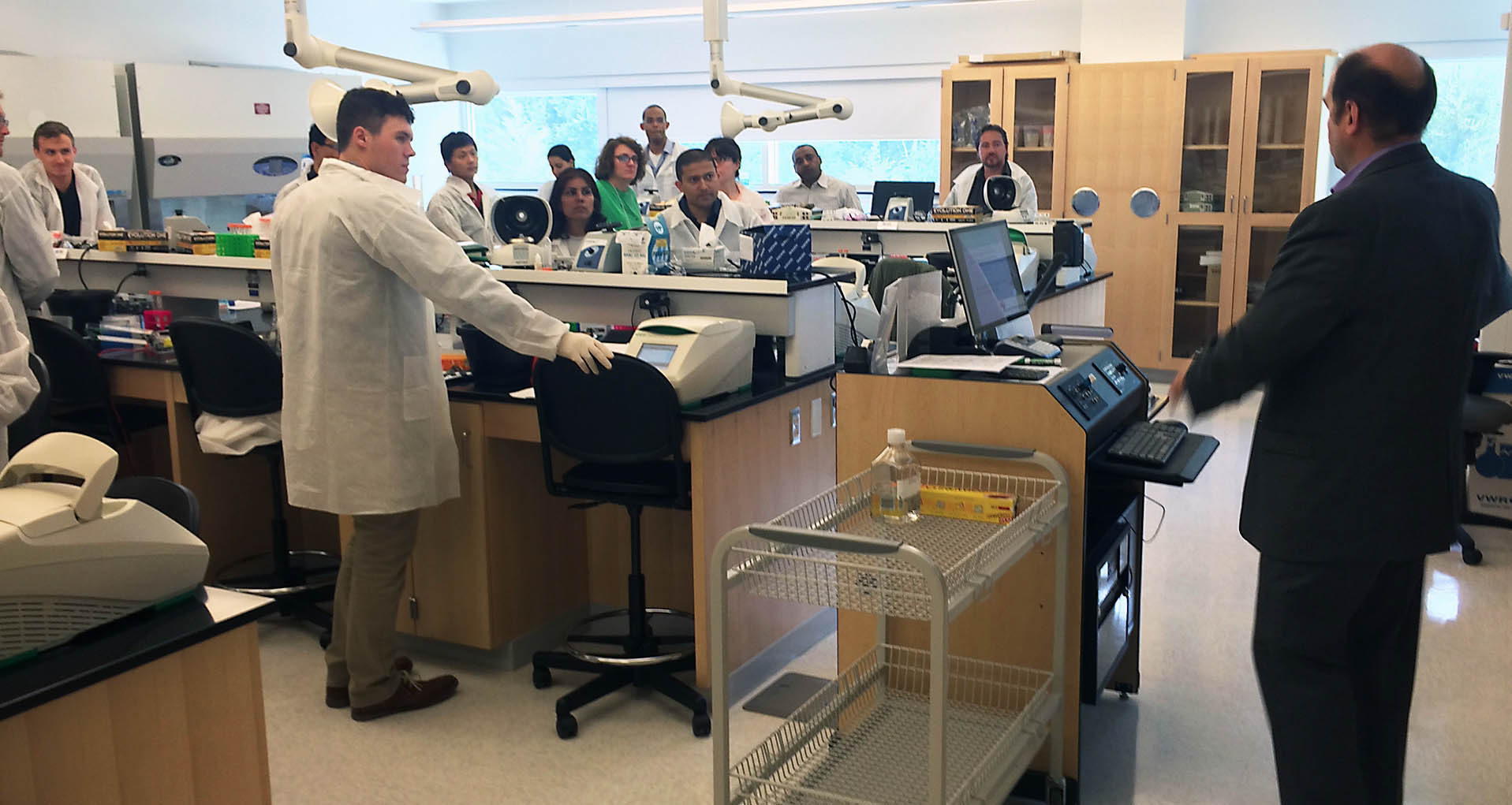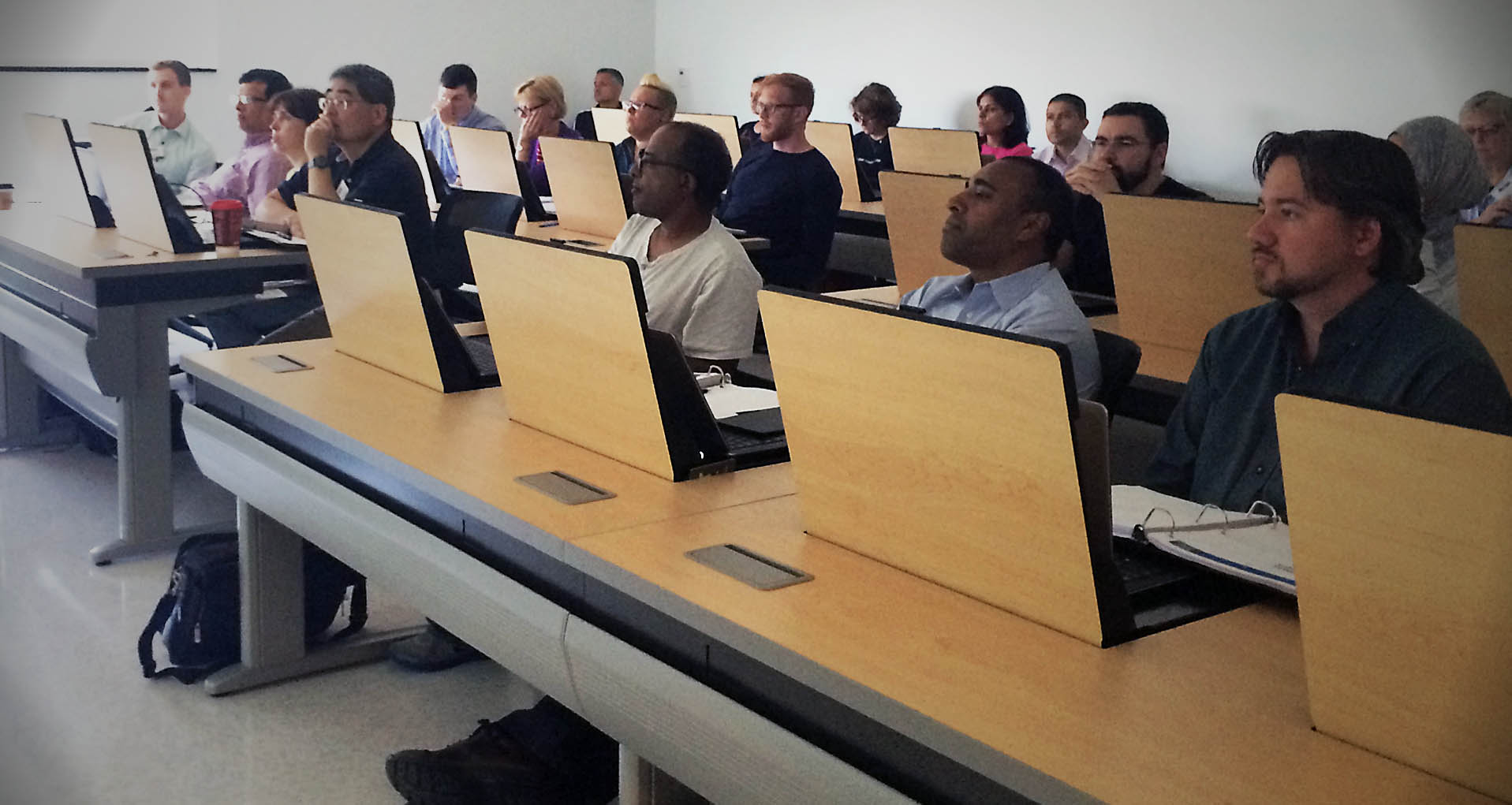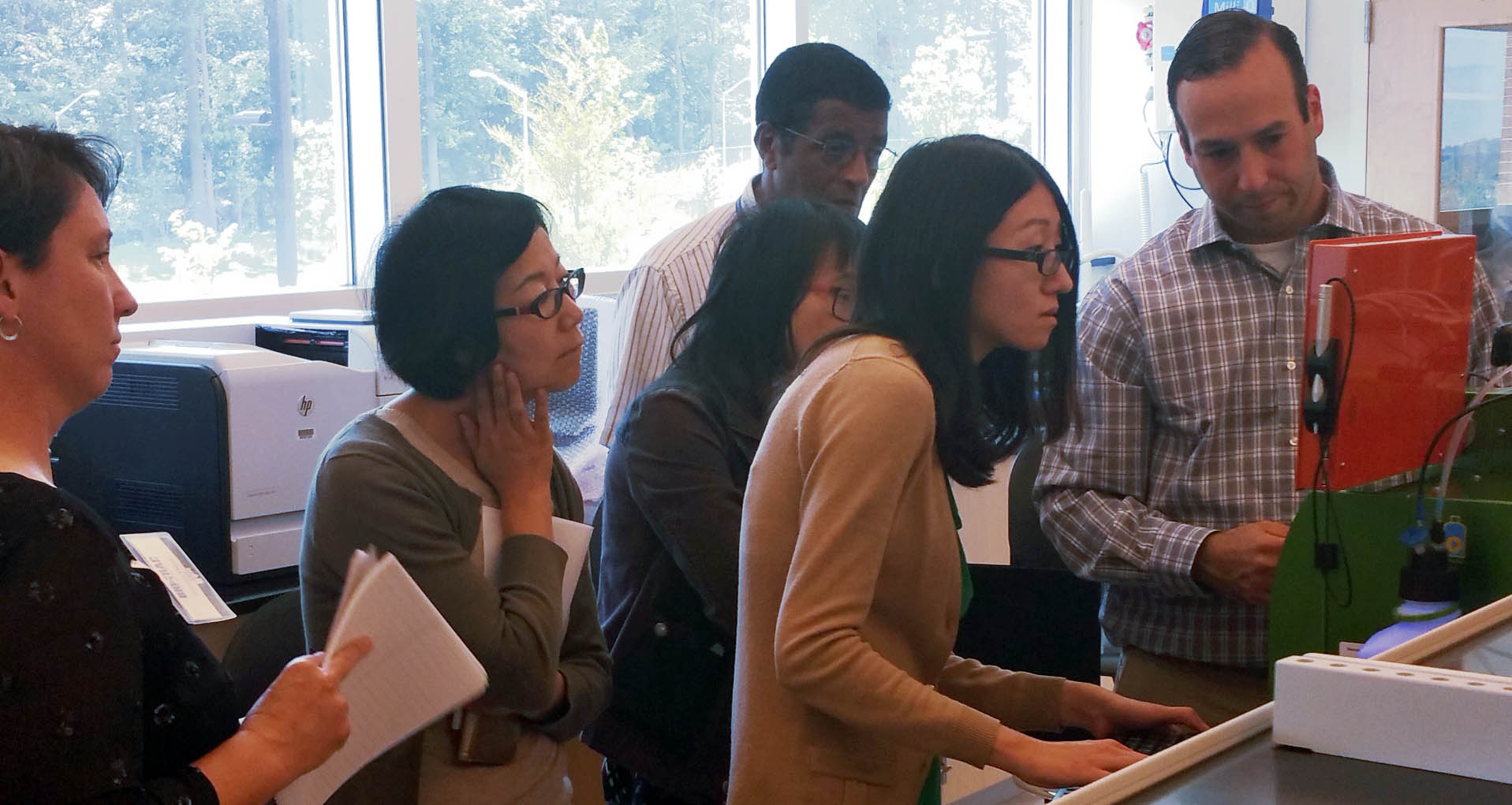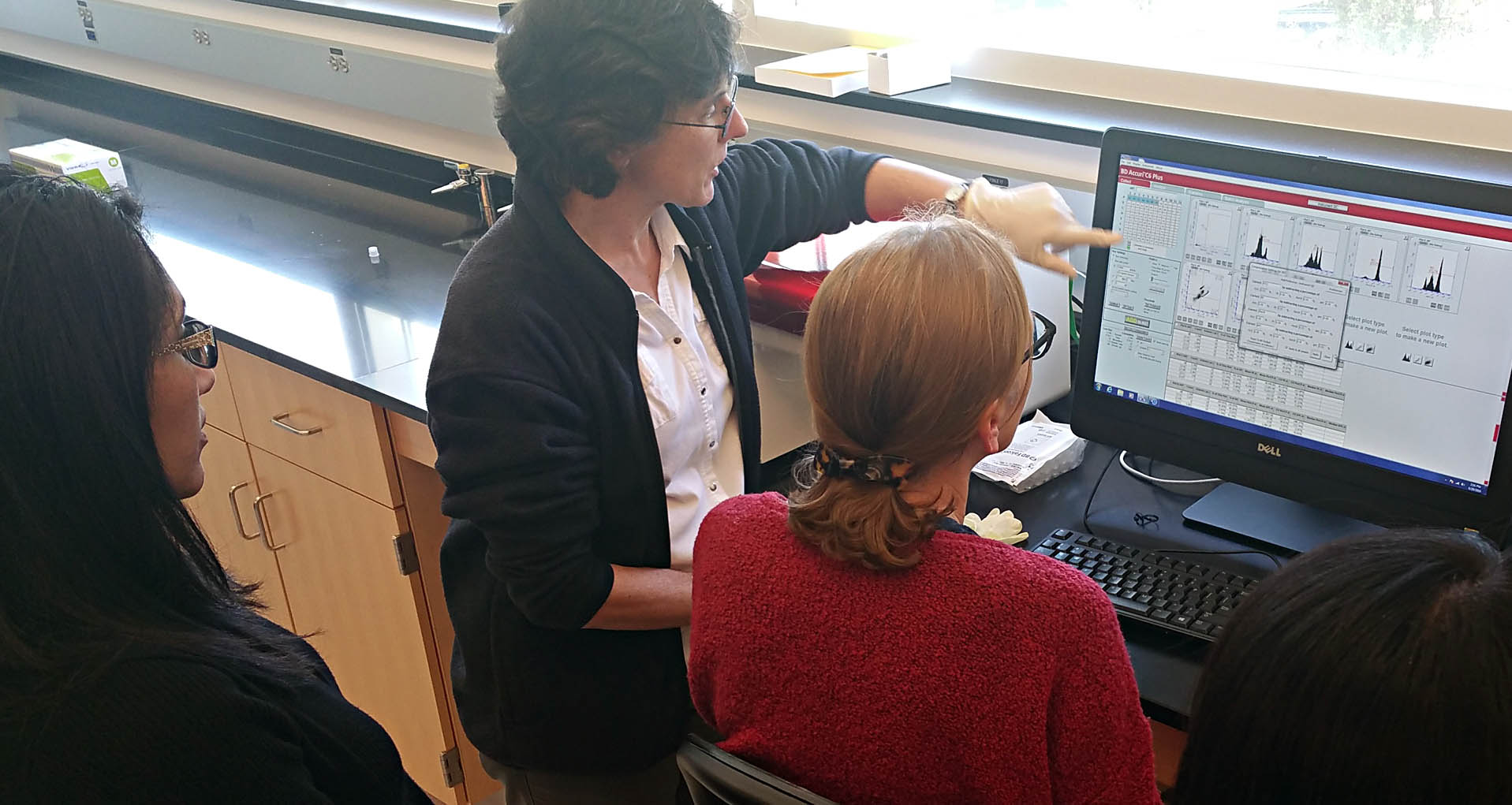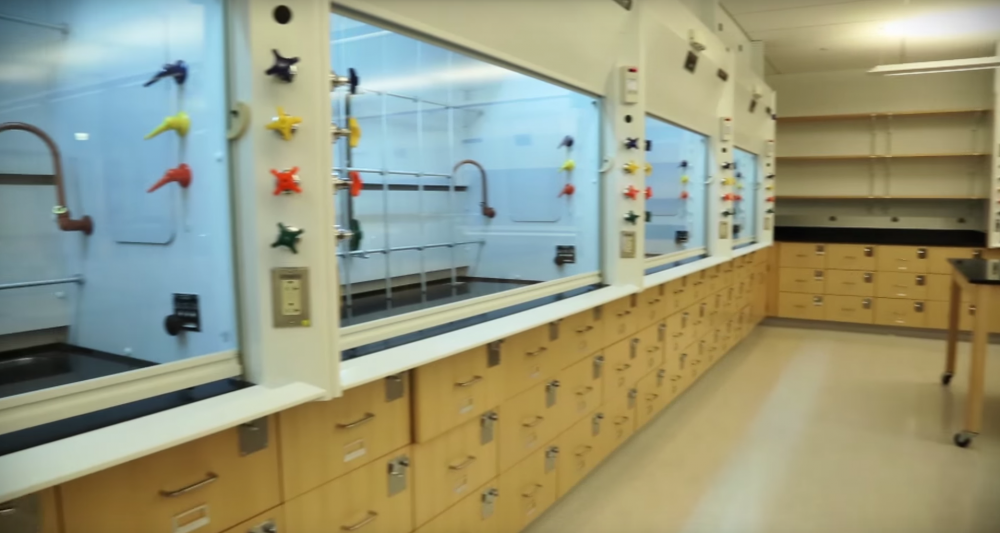Apr 17-19, 2024
Wed - Fri
9:00am-5:00pm
1 Hour Lunch Break
$895
Workshop Fee
Python is a popular scripting language that is used by data professionals because of its many-popular statistical libraries. The live remote three-day lecture and hands-on computer-based laboratory workshop is designed to introduce bench scientists to the powerful tasks that can be taken up with Python by learning everything from language syntax to data manipulation to visualization: all in the context of relevant biological problems! Hands-on topics will include data manipulation, building useful functions to extract data, import/export/writing of data to files, and beginning algorithmic approaches to bioinformatic problems.
Real-Time Interactive Lecture, Laboratory Protocol and Discussion |
|
 | Team taught by active researchers |
Lectures, Lab Protocols, Reference Materials included |
|
 | Space limited to 24 participants |
No Travel, Convenient and Cost Effective |
-
"Very informative workshop with a very knowledgable lecturer. Covered the various aspects of NGS and provided guidance I needed."
Marquita Gittens-St. Hilaire
University of the West Indies (Cave Hill)
NGS
-
"It was my first experience with professional development workshop in the USA. I liked it a lot. It was well organized, flexible and friendly. It helped to put in order my preceding knowledge and gain more."
Larisa Ryzhara, MD, PhD
Staff Scientist II
Maine Medical Center Research Institute
CRISPR
-
"This was a great workshop to become acquainted with Next Generation Sequencing Technologies and applications. I would highly recommend this course to anyone interested in an in-depth hands-on course covering relevant NGS bioinformatics and command line tools. Great experience!"
Cara Schafer
Henry M. Jackson Foundation
for the Advancement of Military Medicine
NGS
-
"Great investment. Took material that would have taken months to compile and perfect on my own, and packed it into 3 days."
Richard Barrett
PHD Student
University of Central Florida
CRISPR
Instructor

- Basic Python syntax and data structures
- Jupyter notebooks
- Loops, aggregations, and arrays
- Data science and statistical libraries like NumPy, SciPy, and Pandas
- Understanding Pythonic functions through biologically relevant tasks (i.e, searching a genome for the origin of replication)
“Bio-Trac courses offer excellent instruction on cutting edge biomedical research topics and allow interaction with experts in the field of study.” Jeannette W., M.S., Uniform Services
“This Bio-Trac course really covered all the important aspects of python for data scientists. I can start using the tools I learned right away on my current project.” Amanda C., PhD, NIH/NCI/CCR

